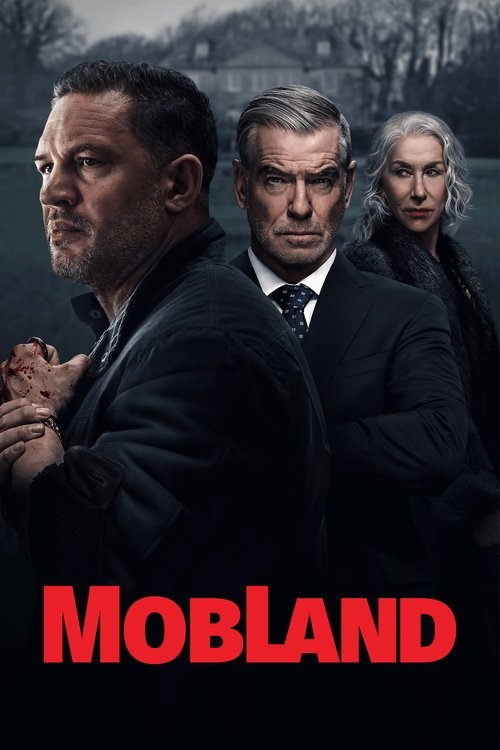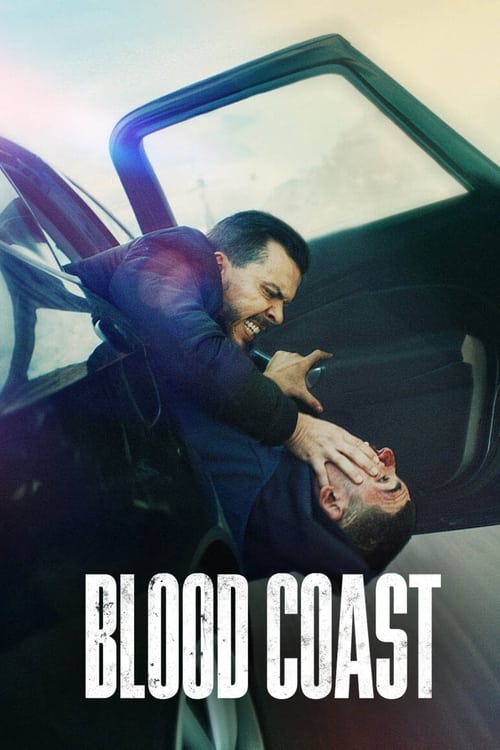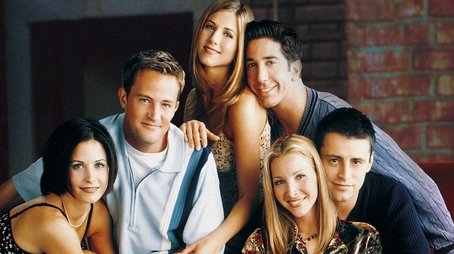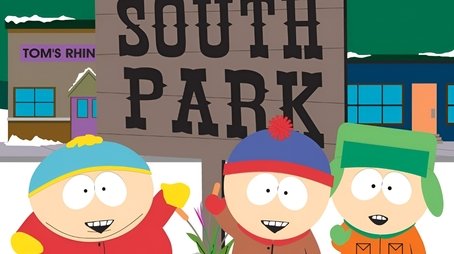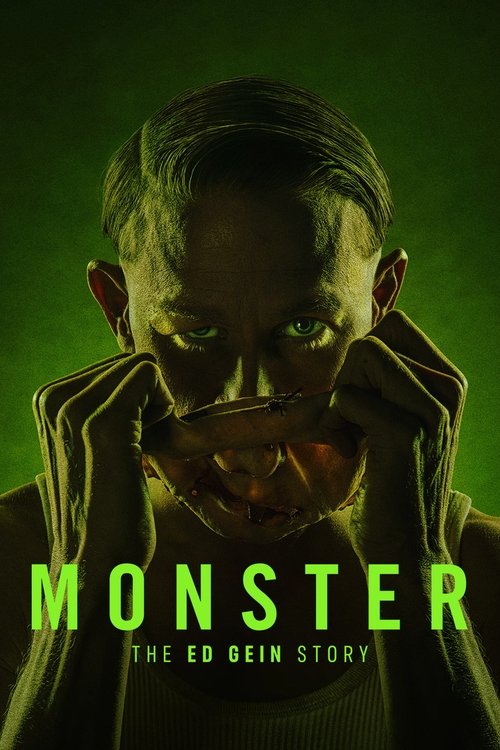
Ask Your Own Question
What is the plot?
The episode opens with Coop preparing himself mentally for the possibility of going to prison. He is contemplative, viewing his situation from a new perspective that signals a shift in his character's trajectory.
Meanwhile, Mel meets with Barney, who hands over the deed to the house. Coop has already signed his half over to Mel, a defensive move anticipating the worst outcome. Mel is displeased with this and confronts Coop about it.
Ali and Bruce's complicated relationship is addressed next. Ali has unresolved issues with Sam, and Mel and Sam pass each other without interaction, highlighting tension. Ali, however, wants to confront the core issues surrounding Coop's predicament. Coop is reluctant to engage, and the conversation awkwardly shifts to Ali's sex life. Ali reveals she has been sleeping with Bruce but is off her medication, which she claims is the only way she experiences pleasure. This leads to a poor performance at the bar where she emotionally exposes herself on stage, including admitting to having sex with Bruce in Hunter's bed. Despite the chaos, the crowd rallies behind her with a chant against Bruce. Back at home, Coop insists Ali must resume her medication, emphasizing the bleakness of their situation and the need to prepare for Coop's potential incarceration.
Coop then tells his lawyer Kat that he will not accept the deal offered to him, asserting, "I am guilty of a lot of things, but I am not guilty of this." He wants the police to re-examine Sam's involvement. Kat points out that phone records place Sam in Boston at the time of Paul's death, but Coop notices his phone number is missing from those records. They deduce Sam must have used a burner phone, but the police say they cannot act without physically possessing it.
Coop enlists his former partner in crime, Elena, to help investigate. Elena volunteers to clean Sam's house while her regular housekeeper is on leave after discovering Paul's body. When Sam leaves for errands, Elena lets Coop into the house to search for the burner phone. Although they initially find nothing, Elena discovers a false bottom in a bathroom drawer containing Paul's bloody suicide note.
Coop waits at the house for Sam's return and confronts her with the evidence. He reveals that Paul did not die from murder but shot himself. He explains that Sam shot Paul's dead body to stage a murder scene, as a suicide would invalidate his lucrative life insurance policy. He also shows her the bloody suicide note Elena found. Sam confesses that Paul called her on FaceTime while drunk and shot himself in front of her. She had been in Boston with her children and left her primary phone there, rushing home to stage the scene and frame Coop by planting the gun in his trunk. She admits to framing Coop because he had not been kind to her. When Coop tries to leave, Sam pulls a gun on him, but he remains unfazed, telling her she is not a killer and walking away.
The police receive a new report from the medical examiner confirming that two of Paul's three gunshot wounds were inflicted postmortem, supporting Coop's theory.
With Sam's confession and the evidence, Coop is cleared of the charges. Sam is arrested but released since she did not actually kill Paul.
In the final scenes, Coop fully embraces the chaos of his new reality. He intimidates a rival tennis parent to prevent her daughter from attending Princeton, thereby securing his own daughter's spot on the college team. He rejects an invitation from his former boss to join an important business trip. Instead, Coop drives to the boss's house and steals a coveted Francis Bacon painting, signaling his return to a life of theft and rebellion. This act symbolizes Coop's transformation; he has learned from his experiences and now operates on a level beyond his neighbors, gaining an edge that will both benefit and endanger him going forward.
What is the ending?
Short, Simple Narrative of the Ending
In the finale, Coop, facing a murder charge for Paul's death, is desperate to clear his name. He and his accomplice Elena discover a hidden suicide note from Paul, proving he took his own life. Sam, Paul's wife, had staged the scene to frame Coop after realizing the suicide would void her life insurance. Confronted with the evidence, Sam confesses, and Coop is exonerated. Meanwhile, Coop's family rallies around him, and he chooses to fight for his future rather than accept a plea deal. Sam is arrested but released, as she did not actually kill Paul. The episode ends with Coop reunited with his children and a tentative hope for redemption.
Expanded, Chronological, Scene-by-Scene Narrative
The episode opens with Coop sitting alone in his home, staring at the walls, imagining a peaceful moment by the pool with his ex-wife Mel and their children calling him to swim. The warmth of the daydream contrasts sharply with his reality: he is under suspicion for Paul's murder, his country club membership suspended, and his future uncertain. He signs over his half of the house to Mel, a practical move that leaves her visibly shaken and worried about his state of mind.
Coop spends the night with his children, Hunter and Tori, and his sister Ali. The atmosphere is tense but loving. Ali, struggling with her mental health and off her medication, performs at a local bar. Her set devolves into a raw, emotional confession about her affair with Bruce, her married ex, including the detail that they had sex in Hunter's bed. The crowd, initially shocked, eventually chants "fuck Bruce" in solidarity. Back at home, Coop gently urges Ali to resume her medication, aware that he may not be around to support her much longer. He gives his expensive watch to Hunter, a gesture that does not go unnoticed by Mel.
Mel, seeing the watch on Hunter's wrist, realizes Coop is preparing for the worst. She marches to his house and confronts him directly, her voice trembling with anger and fear. "If you ever loved me, don't bullshit me right now," she demands. Coop admits he is considering a plea deal that would send him to prison for six years, even though he is innocent. Mel pleads with him to fight, to not give up on himself as he did on their marriage. In a moment charged with unresolved love and frustration, she kisses him passionately before leaving. This encounter reignites Coop's determination to prove his innocence.
Coop meets with his lawyer, Kat, who has uncovered a discrepancy in Sam's phone records. Despite frequent communication, Coop's number is absent from Sam's phone, suggesting she used a second, hidden device. Detective Lin remains skeptical, but Coop enlists the help of Elena, his former partner in crime. Posing as a cleaner, Elena gains access to Sam's house while Sam is out. Together, they search every drawer and cabinet, growing increasingly desperate. Their breakthrough comes when Elena discovers a false bottom in a bathroom drawer. Inside, they find Paul's suicide note, stained with blood.
Armed with this evidence, Coop waits for Sam to return. When she arrives, he confronts her with the note. Sam, cornered and emotionally drained, confesses the truth: while she was in Boston with her children, Paul, drunk and despondent, broke into her home and called her on FaceTime. During the call, he shot himself in the head. Realizing that a suicide would void the $20 million life insurance policy, Sam rushed back, put on gloves, and fired two additional shots into Paul's body to stage a murder. She then planted the gun in Coop's car, framing him to secure the insurance money for herself and her children.
With Sam's confession and the physical evidence, Coop is cleared of all charges. Sam is arrested but quickly released, as she did not actually cause Paul's death. The legal threat to Coop evaporates, but the emotional fallout lingers. He is reunited with his children, who embrace him with relief and love. Mel, though still his ex-wife, remains a steadfast presence, their bond undiminished by divorce. Ali, encouraged by her brother, agrees to resume her medication, signaling a fragile hope for stability.
The episode closes with Coop, no longer a victim or a suspect, standing at a crossroads. The ordeal has exposed the fragility of social facades, the lengths people will go to protect their interests, and the enduring strength of family ties, even when fractured. Each character is left to reckon with their choices: Coop with his resilience and capacity for reinvention, Mel with her unwavering support, Ali with her struggle for mental health, and Sam with the consequences of her deception. The story ends not with resolution, but with the possibility of redemption and the understanding that, in the end, everything becomes symbol and irony.
Is there a post-credit scene?
There is no evidence in the available sources that the season 1 finale of Your Friends & Neighbors, episode 9 titled "Everything Becomes Symbol and Irony," contains a post-credit scene. The episode's narrative concludes with a series of major revelations and character decisions, but none of the detailed recaps, reviews, or official episode guides mention any additional content after the credits roll.
The finale's climax centers on the unmasking of Sam's deception--revealing that Paul died by suicide, not murder, and that Sam staged the crime scene to frame Coop for financial gain. The perspective shifts to Sam, who narrates her own story of disillusionment and the lengths she went to maintain the illusion of success in their affluent community. Coop, cleared of the murder charge, is offered his old job back but instead chooses to reject corporate life entirely, breaking into a neighbor's house to steal a painting and driving off into the night, fully embracing his identity as a thief.
The episode ends with these character arcs reaching their conclusions: Sam's facade is shattered, Coop's transformation is complete, and the various relationships among the ensemble are resolved or left in a state of uneasy truce. No scene or stinger is described as occurring after the credits, and all available summaries treat the final moments of the episode as the definitive end of the season's narrative.
If a post-credit scene existed, it would likely have been noted in major recaps or reviews, given the show's attention to detail and the significance of its twists. Based on the current information, "Everything Becomes Symbol and Irony" does not feature a post-credit scene.
What are the key character dynamics and conflicts in episode 9 'Everything Becomes Symbol and Irony'?
In episode 9, Coop is preparing for a potential life behind bars and is seen transferring his half of the house deed to Mel as a defensive move. Mel confronts Coop about his attitude and decisions, showing tension between them. Ali is dealing with unresolved issues involving Bruce and Sam, revealing she has been off her medication and engaging in risky behavior, which affects her performance at a bar. Coop insists Ali needs to get back on her meds, highlighting their strained relationship. Meanwhile, Coop is grappling with his legal troubles and the possibility of imprisonment, which affects his interactions with others around him.
What major plot twists or revelations occur in this episode?
The episode reveals that Paul Levitt's death was not a straightforward murder but involved a complex setup, including Paul's suicide and Sam's scheme to frame Coop. This twist flips the entire story on its head, showing that Coop is not just a victim but becomes a vigilante figure by the end. The episode also uncovers Sam's hidden motives and Coop's transformation, which are central to the finale's impact.
How does Coop's character evolve throughout the episode?
Coop starts the episode resigned to the possibility of going to prison, adopting a new perspective on his situation. He transfers his assets to Mel to protect his family's financial security and initially plans to fight his case but later considers a plea bargain. By the end, Coop embraces a new identity as a professional thief, negotiating a lucrative deal with his former employers but ultimately choosing to walk away from the opportunity, signaling a significant personal transformation and liberation from his past.
What symbolic or thematic elements are emphasized in 'Everything Becomes Symbol and Irony'?
The episode emphasizes themes of deception, social façades, and reinvention. Coop's changing perspective and his final decision to leave the gala early symbolize his break from his former life. The title itself reflects how events and relationships in the story become laden with symbolic meaning and irony, such as Coop's forgiveness of Sam contrasted with his lingering grudge against Mel, and the public unraveling of private dramas like Ali's onstage confession. These elements underscore the show's exploration of personal and social complexities.
What unresolved issues or cliffhangers does the episode leave for the next season?
The episode leaves open the future of Coop and Mel's relationship, with Mel deciding to fly solo for a while but the door left open for a reunion. Coop's new career path as a professional thief and his choice to walk away from a major deal suggest ongoing personal and professional challenges. The true extent of Sam's schemes and the fallout from Paul's death also remain areas for further exploration. These unresolved threads set the stage for continued drama and character development in Season 2.
Is this family friendly?
The TV show "Your Friends & Neighbors," Season 1, Episode 9 ("Everything Becomes Symbol and Irony"), is rated TV-MA and is not family friendly. It contains severe profanity, moderate sex and nudity, moderate alcohol and drug use, mild violence, and some frightening/intense scenes.
Potentially objectionable or upsetting aspects for children or sensitive viewers include:
- Frequent foul language and explicit dialogue.
- Multiple sexual situations, some sudden and explicit.
- Drug and alcohol use portrayed regularly.
- Mild violence and a murder-related plot element.
- Themes involving moral decay, wealth, privilege, and crime that may be disturbing or complex for younger audiences.
Because of these mature themes and content, the episode is best suited for adult viewers and is not appropriate for children or those sensitive to strong language, sexual content, substance use, or violence.
Does the dog die?
In Your Friends & Neighbors Season 1, Episode 9 ("Everything Becomes Symbol and Irony"), the dog does not die. There is no mention or depiction of a dog dying in this episode or the season finale. The episode focuses primarily on Coop's legal troubles, the resolution of the murder mystery surrounding Paul Levit's death (which is revealed to be a suicide, not a murder), and Coop's refusal to accept a plea deal.
However, earlier in the series, specifically in Season 1, Episode 4, there is a mention that a dog has passed away, indicated by an empty dog bed shown on screen. This event is separate from the events of Episode 9.
Therefore, regarding Episode 9, the dog does not die. The dog's death is only referenced earlier in the series, not in the season finale.


















